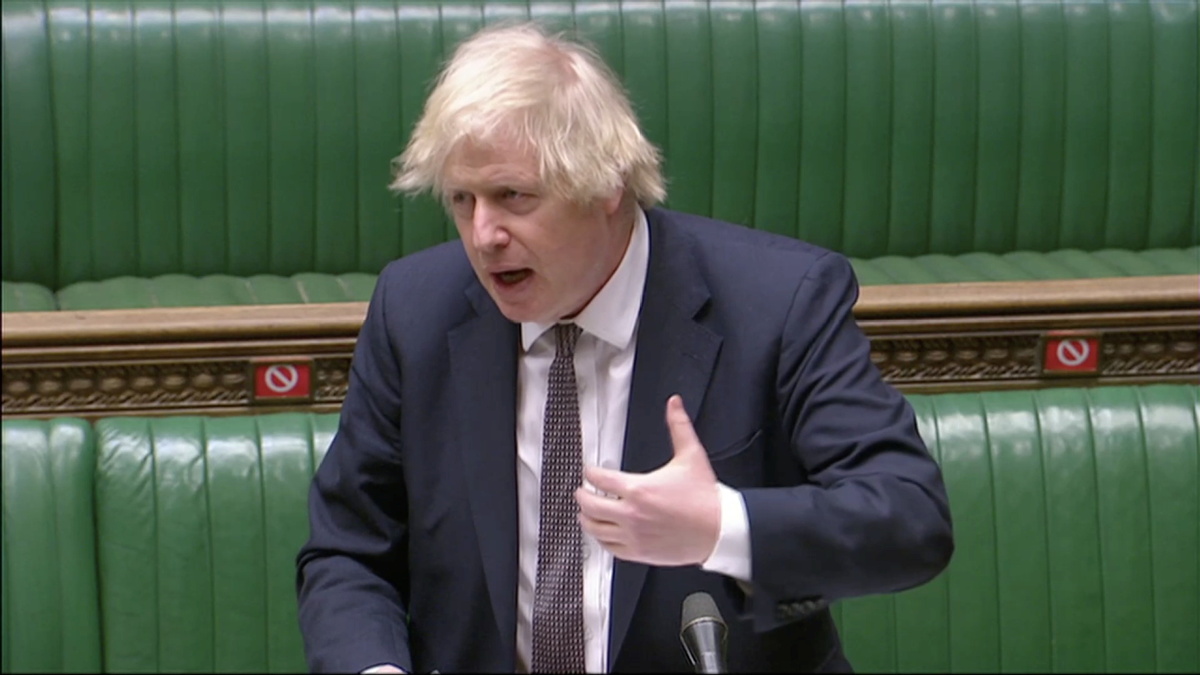PM draws criticism for 'back to office' call


Scientists in the United Kingdom have warned against employees returning to work in offices in response to comments made by Prime Minister Boris Johnson that people have had enough "days off" during the COVID-19 pandemic.
The opposition Labour Party said his words were "irresponsible" after he told the virtual Conservative Party spring conference on Saturday that it was important to get people "back into the office".
In comments reported across British media, Johnson said:"The general view is people have had quite a few days off, and it wouldn't be a bad thing for people to see their way round to making a passing stab at getting back into the office."
In what was intended as an upbeat message, Johnson added:"I can see absolutely nothing in the data to dissuade me from continuing along our road map to freedom, unlocking our economy and getting back to the life we love."
He cautiously added that a third wave is being witnessed in parts of Europe and that "bitter experience" had taught him this could hit the UK "three weeks later".
Labour member of Parliament Andy McDonald, the shadow employment rights and protections secretary, told The Guardian his remarks showed poor leadership. McDonald said:"He is trying to appease the libertarian wing of his party on the one hand by talking about getting back to the office, then suggesting he is being cautious. He just throws out comments like this. You can't ride two horses at once. It is not leadership, it is simply cavalier."
Some sections of government, including Chancellor of the Exchequer Rishi Sunak, are pushing for a return to offices when the lockdown eases, as the move to work from home has decimated business for city center shops. However, the official advice in the UK remains that people should work from home if possible and no changes are expected in the coming weeks.
Scientists expressed concern about the prime minister's comments, and warned that a return to the office was inadvisable.
"At this point, the focus has to be on keeping new daily cases as low as possible, while the vaccination rollout continues," said Michael Head, senior research fellow in global health at Southampton University, quoted in The Daily Mail.
Recruitment experts told the Observer newspaper that after the pandemic, the model of five-days a week in the office would likely be replaced with more flexible arrangements, with the majority of time spent working from home.
"We are seeing huge changes," said James Reed, chief of leading recruitment company Reed, adding that the effect of the pandemic on work models would be "profound and permanent".
"There is no doubt from our conversations with employers and the types of jobs being advertised that the pandemic will lead to lasting changes in the way we live and work," he said.
The government has said it intends to encourage flexible working arrangements and consult about making them the default.
The minister for women and equalities, Liz Truss, earlier this month called for employers to make flexible working a standard option for employees.
In a news release, she said:"The shift for many people to work from home during the pandemic has changed mindsets and now is a chance to seize the opportunity of making flexible working the norm, rather than something employees have to specially request."
































